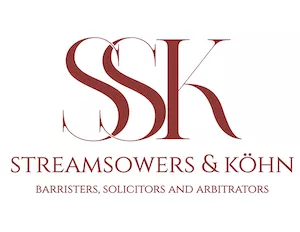- within Corporate/Commercial Law topic(s)
- in United States
- with readers working within the Oil & Gas and Law Firm industries
- within Corporate/Commercial Law, Tax and Employment and HR topic(s)
1. Legislation and Enforcing Authorities
1.1 Merger Control Legislation
The Federal Competition and Consumer Protection Act 2018 (FCCPA), enacted in 2019, governs merger review and approval in Nigeria.
In 2020, the Banks and Other Financial Institutions Act 2020 (BOFIA) was enacted. Section 65 (1) of BOFIA stripped the Federal Competition and Consumer Protection Commission (FCCPC) of its competition powers with regard to the financial services sector, which is under the regulatory supervision of the Central Bank of Nigeria (CBN), the financial services regulator. Section 65 (3) of BOFIA further ascribed the competition regulation powers of the FCCPC to the CBN, thus subjecting mergers occurring in the financial services sector to the regulatory scrutiny of the CBN.
In the communications sector, section 90 of the Nigerian Communications Act 2003 authorises the Nigerian Communications Commission (NCC), the communications sector regulator, to determine, pronounce upon, administer, monitor and enforce compliance of all persons with competition laws and regulations, whether of a general or specific nature, as they relate to the Nigerian communications market. Pursuant to this authority, the NCC issued through administrative rule-making the Competition Practices Regulation 2007, which provides in regulation 26 that the NCC may review all mergers, acquisitions and takeovers occurring in the communications sector. This merger review power of the NCC is exercised concurrently with the FCCPC.
1.2 Legislation Relating to Particular Sectors
The FCCPC in exercising its rule-making power under the FCCPA issued the Guidelines on Simplified Process for Foreign-to-Foreign Mergers with Nigerian Component (the Foreign-to-Foreign Merger Guidelines). The Foreign-to-Foreign Merger Guidelines, among other things, prescribe the manner in which a foreign-to-foreign merger with a Nigerian component may be notified to the FCCPC and how the applicable fees for notification may be calculated.
In terms of foreign investment, the Nigerian Investment Promotion Commission Act provides that a foreign national can own up to 100% of a business or can invest in any business except those on the negative list. Sectors that are listed in the negative list in which foreign investment is prohibited are: production of arms, ammunition, etc; production of and dealing in narcotic drugs and psychotropic substances; production of military and paramilitary wear and accoutrements, including those of the police and the customs, immigration and prison services; and such other items as the Federal Executive Council may from time to time determine.
1.3 Enforcement Authorities
The FCCPC enforces the FCCPA. When reviewing mergers in which one of the merger parties is also subject to the regulatory supervision of another regulator, the FCCPC requires a letter of no objection from that sector regulator as a requirement for the issuance of an unconditional approval for the merger.
2. Jurisdiction
2.1 Notification
Notification to the FCCPC is only required if the merger meets the jurisdictional threshold for notification. Under the FCCPA, a merger becomes notifiable to the FCCPC if it meets the criteria specified as constituting a relevant merger situation. According to paragraph 2.3 of the Merger Review Guidelines (MRG) issued by the FCCPC, a relevant merger situation is created where the following cumulative criteria are met:
- two or more undertakings must come under common control, or there must be arrangements in progress or in contemplation which, if carried into effect, will lead to the undertakings coming under a common control to be distinct; and
- either the value of Nigerian turnover of the undertaking which is being acquired in the preceding year exceeds the prescribed threshold or the combined value of the Nigerian element of the merging undertakings in the preceding year exceeds the prescribed threshold (known as 'the turnover test'), as stipulated in the Notice of Threshold for Merger Notification 2019 (Threshold Regulations) issued by the FCCPC.
If the FCCPC believes that the first criterion has not been met, it will not consider the second criterion as a relevant merger situation is not created. In addition, where an undertaking in Nigeria comes under the control of a foreign undertaking, the merger may be subject to notification if the turnover test under the Threshold Regulations is met or if the acquisition of the Nigerian undertaking affects the market structure by preventing or lessening competition in Nigeria.
Regarding mergers in the financial services sector, the standard for assessing the jurisdictional threshold applied by the FCCPC would most likely be the standard that will be applied by the CBN when assessing whether a relevant merger situation has been created. In the communications sector, the types of qualifying merger transactions that are notifiable to NCC are: the acquisition of more than 10% of the shares of a communications licensee; a transaction that results in a change of control of a communications licensee; and a direct or indirect transfer or acquisition of an individual communications licence.
2.2 Failure to Notify
Failure to notify a qualifying merger transaction is an offence under section 96 (7) of the FCCPA that would expose the merger parties to a fine not exceeding 10% of their turnover in the business year preceding the date of commission of the offence or such other percentage as the court may determine having regard to the circumstances of the case.
In the communications sector, a failure to obtain the written consent of the NCC when transferring or assigning a communications licence is an offence under the Nigerian Communications (Enforcement Processes, etc) Regulations 2019. Convicted offenders are liable to a fine of NGN10 million and a further NGN500,000 per day calculated from the effective date of the transfer or assignment as determined by the NCC and payable for as long as the contravention persists. The NCC may impose a maximum lump sum fee of NGN2 million on licensees with a turnover less than NGN1 billion. Where a joint venture or change in shareholding structure in a communications licensee is implemented without first obtaining the consent of the NCC, the offending licensee(s) is/are liable to a fine of NGN5 million and a further NGN500,000 per day calculated from the effective date of the joint venture arrangement or change in shareholding structure, as determined by the NCC, and payable for as long as the contravention persists.
However, the NCC normally publishes details of its enforcement activities regarding a failure to notify a qualifying merger occurring in the communications sector. We are not aware of any case where such a penalty has been applied in practice by the FCCPC or made public.
2.3 Types of Transactions
According to paragraph 2.6 of the MRG, the following transactions are subject to a merger review:
(a) acquisitions of property within Nigeria are covered by virtue of section 92 (1) of the FCCPA, including (but not limited to):
- shares in Nigerian companies, wherever the transaction is entered into, as the shares are domestically situated;
- domestic businesses;
- local intellectual property such as trademarks, patents and copyright; and
- local plant and equipment;
(b) acquisitions of property, wherever situated, are covered by virtue of section 92(1) and section 2 (1)-(3) of the FCCPA if the acquirer:
- is incorporated in Nigeria;
- carries on business in Nigeria;
- is a Nigerian citizen; or
- is ordinarily resident in Nigeria; and
(c) if (a) and (b) above do not apply, acquisitions of a controlling interest (presumably shares in almost all cases) in a body corporate where that body corporate has a controlling interest in a corporation are covered by virtue of section 92 (1) of the FCCPA.
According to the FCCPC, an internal restructuring within a group of companies does not constitute a relevant merger situation and is thus exempt from notification because it does not lead to control by an external party.
In the communications sector, the following transactions are caught: the acquisition of more than 10% of the shares of a communications licensee; a transaction that results in a change of control of a communications licensee; and a direct or indirect transfer or acquisition of an individual communications licence.
2.4 Definition of "Control"
Neither the FCCPA nor the FCCPC defines what constitutes control for merger notification purposes. However, the FCCPA in section 92 (2) provides a list of situations where an undertaking may be determined to exercise control over the business of another undertaking. These situations are where an undertaking:
- beneficially owns more than one-half of the issued share capital or assets of another undertaking;
- is entitled to cast the majority of votes that may be cast at a general meeting of the company or has the ability to control the voting of the majority of those votes;
- is able to appoint or veto the appointment of a majority of the directors of the undertaking;
- s a holding company, and the company is a subsidiary of that company as contemplated under the Companies and Allied Matters Act (CAMA);
- in the case of an undertaking that is a trust, has the ability to control the majority of votes of the trustees, to appoint the majority of the trustees or to appoint or change the majority of the beneficiaries of the trust; or
- ) has the ability to materially influence the policy of the company in a manner comparable to a person who, in ordinary commercial practice, can exercise the element of control referred to in (a) to (e).
According to section 92 (3) of the FCCPA, control does not exist in either of the following circumstances:
- credit institutions or other financial institutions or insurance companies acquiring securities of an undertaking in the ordinary course of business on a transitory basis or where the company is raising capital, provided they do not exercise voting rights to determine the competitive behaviour of the undertaking and they dispose of the securities within one year of acquisition; and
- control acquired under the law relating to liquidation, winding up, insolvency, cessation of payments, compositions or analogous proceedings.
In addition, as explained in 2.1 Notification, control is only one of the criteria used for assessing whether a merger is notifiable to the FCCPC. The other criterion is the turnover threshold. If these two criteria are met, then a merger is caught and must be notified to the FCCPC.
2.5 Jurisdictional Thresholds
See 2.1 Notification.
2.6 Calculations of Jurisdictional Thresholds
The jurisdictional threshold necessary to trigger a merger review involves two cumulative criteria that must be met in every case. These are the control element and the turnover test. Only the turnover test involves calculations which must be done in accordance with the Threshold Regulations. Pursuant to paragraph 1.1 of the Threshold Regulations, the turnover test is met if in the financial year preceding the merger:
- the combined annual turnover of the acquiring undertaking and the target undertaking in, into or from Nigeria equals or exceeds NGN1 billion; or
- the annual turnover of the target undertaking in, into or from Nigeria equals or exceeds NGN500 million.
Where the applicable turnover is in foreign currency, the FCCPC uses the prevailing exchange rate determined by the CBN as at the end of the financial year preceding the notification or the date on which the contract creating the merger came into force, whichever is later.
2.7 Businesses/Corporate Entities Relevant for the Calculation of Jurisdictional Thresholds
The businesses or corporate entities that have generated a turnover that is attributable to a business, or derived from Nigeria are relevant for the purpose of calculating the turnover. In addition, as we explained in 2.6 Calculations of Jurisdictional Thresholds, turnover may be calculated on the basis of the combined annual turnover of the acquiring undertaking and the target undertaking, or on the basis of the annual turnover of only the target undertaking.
Turnover may also be calculated on a groupwide basis provided it is attributable to and/or derived from Nigeria. 'Group-wide', according to the practice of the FCCPC, refers to an undertaking in which any of the merger parties has a controlling interest. Lastly, regarding changes in the business during the reference period, there is no particular procedure prescribed by the FCCPC for this; however, it is conceivable that discussions in this regard may be had with the FCCPC as part of the pre-notification consultation.
2.8 Foreign-to-Foreign Transactions
Where there is a local component to foreign-toforeign transactions, such transactions are subject to merger control. According to the FCCPC, a local component exists if a foreign entity has a local nexus such as having subsidiaries in Nigeria or satisfies the turnover test provided in the Threshold Regulations. Where the target undertaking has no subsidiaries, sales and/or assets in Nigeria, our view is that no turnover has been generated, and as such, notification to the FCCPC is not required.
2.9 Market Share Jurisdictional Threshold
As at the time of writing, market share jurisdictional threshold does not apply in Nigeria.
2.10 Joint Ventures
As a general rule for any joint venture to qualify for a merger review, it must meet the basic criteria of economic integration of the parties' business activities (for example, through a contribution of productive assets to a new business undertaking), the elimination of competition between the parties in the joint venture's field of activity through this contribution, and the relative permanence of the joint business activity. Where these basic criteria are met, the joint venture will be brought within the general scope of merger review if the creation of the joint venture will typically involve the transfer of voting equity or assets and by reference to the underlying combination of previously independent businesses.
In addition, a full-function joint venture must be notified to the FCCPC if the value of its assets or turnover is above the turnover test. A full-function joint venture is one which operates on a lasting basis with all the functions of an autonomous economic entity, competes with other undertakings in a relevant market, and has sufficient resources and staff to operate independently in the relevant market.
2.11 Power of Authorities to Investigate a Transaction
Section 95 (3) of the FCCPA authorises the FCCPC to require the parties to a merger that does not meet the jurisdictional threshold to notify it of the merger in the prescribed manner and form, if the FCCPC is of the opinion that the merger may substantially prevent or lessen competition. The exercise by the FCCPC of its section 95 (3) power under the FCCPA must be done within six months of the merger being implemented.
2.12 Requirement for Clearance Before Implementation
According to section 93 (1) of the FCCPA, a proposed merger shall not be implemented unless it is first notified to and approved by the FCCPC. Specifically, regulation 13 (2) of the Merger Review Regulations 2020 (MRR) requires the merging parties to ensure that before and during the notification period, they take no steps and undertake no activities that may be deemed co-ordination or integration of their businesses or their competitive conduct in any of the following respects: (a) the exchange of commercially sensitive information; (b) the nature of contractual clauses governing the relationship; and (c) the activities of the parties before and during the notification of the merger. To do otherwise would increase their risk of engaging in a gun-jumping conduct which could expose them to fines from the FCCPC.
Examples of gun jumping as stated in paragraph 3.61 of the MRG include the following:
- co-ordination between merging parties on prices or terms to be offered to customers for sales prior to closing the merger;
- allocating customers for sales to be made prior to closing; and
- if, prior to closing, merging firms coordinate their negotiations with customers for sales to be made after the merger closes (eg, negotiations of long-term contracts).
For mergers that do not meet the jurisdictional threshold for notification, which are notified to the FCCPC post-transaction, no further steps are required to be undertaken by the merger parties to integrate the respective businesses.
2.13 Penalties for the Implementation of a Transaction Before Clearance
Under the Federal Competition and Consumer Protection Commission (Administrative Penalties) Regulations 2020, the base penalty for gun jumping is 2% of the turnover in the preceding year of the merger parties, and the final penalty is calculated on the basis of a number of factors such as the duration of the months in which the gun jumping persists, the ratio of the aggravating factors and the ratio of the mitigating factors.
The FCCPC has on several occasions stated that it will impose a penalty where parties implement a qualifying merger without its approval. While we are aware that such penalties have been imposed in the case of undertakings domiciled in Nigeria, we are not aware of any case where such a penalty has been made public or applied in the case of a foreign-to-foreign merger.
2.14 Exceptions to Suspensive Effect
As at the time of writing, there are no general exceptions to the obligation not to implement a qualifying merger without first seeking and obtaining the approval of the FCCPC and/or the NCC.
2.15 Circumstances Where Implementation Before Clearance Is Permitted
Global transactions may be implemented without seeking prior approval of the FCCPC in circumstances where there is no local component and the jurisdictional threshold is not met.
To view the full article click here
Originally Published by CHAMBERS AND PARTNERS
The content of this article is intended to provide a general guide to the subject matter. Specialist advice should be sought about your specific circumstances.




